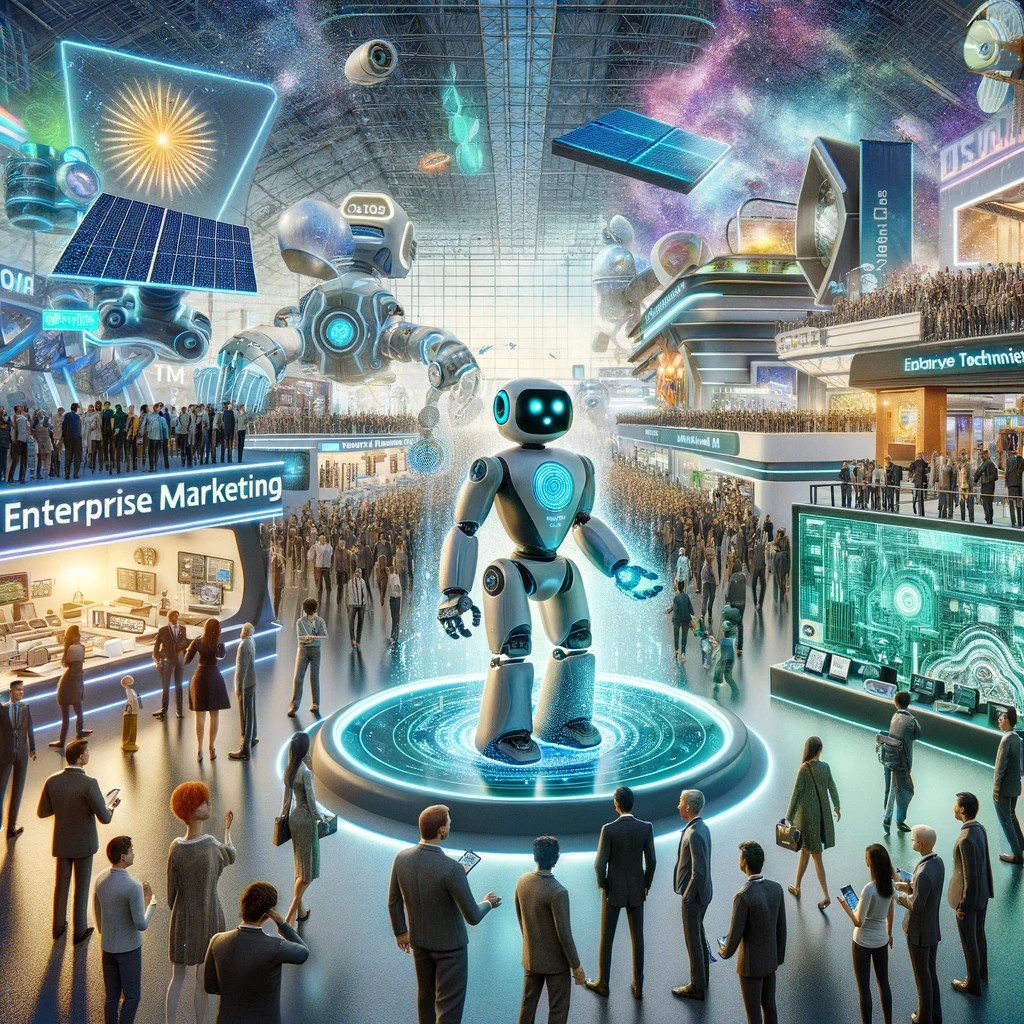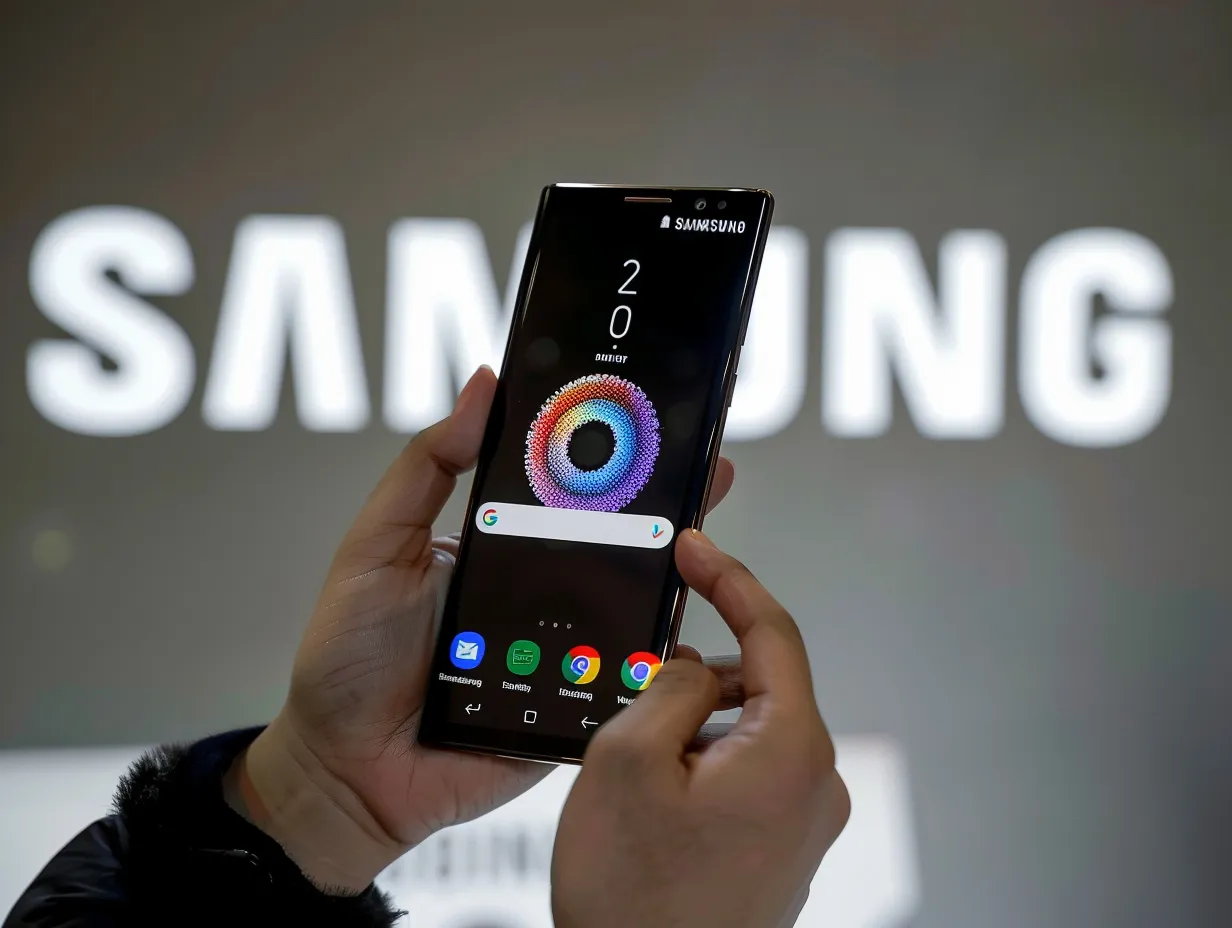CES 2024, the world-renowned Consumer Electronics Show, has again captured the global tech industry’s attention with groundbreaking innovations. This year’s event drew 135,000 attendees and spotlighted major developments in artificial intelligence (AI), sustainability, and the convergence of enterprise tech marketing.
AI pioneering diverse applications
At the heart of CES 2024 stood the pervasive influence of AI, demonstrated through diverse and captivating applications. One notable instance was the collaboration between Blovo Animal Health & Lovo Tales, which aimed to transform pet healthcare. By integrating AI, pet owners gain easy access to veterinary services and efficient pet health data management through ChatGPT. This innovation promises to reduce pet care costs while providing greater control over pet health data.
DeRUCCI unveiled the T11 Pro Smart Mattress, which utilizes its AI model to monitor health indicators such as snoring, temperature, and movement, ultimately promoting improved sleep quality. The unique feature is the ability to conduct real-time inferences in the bedroom, ensuring timely adjustments for optimal comfort.
Furthermore, discussions with industry leaders like Sandip Ranjhan, CEO of Cerebrumx, underscored the importance of AI at the automotive level. AI’s role in data analysis and summarization at the edge is set to revolutionize sectors like insurance, optimizing risk determination and preventive maintenance.
AI in manufacturing: A multimodal approach
IBM Crop. highlighted AI applications in manufacturing, supply chain management, and sustainability. The conversation emphasized the need to bring AI to the data, enhancing industrial processes and maintenance. Foundational models across industries remain consistent, with data as the variable element.
Amazon Web Services Inc. delved into the synergy between AWS, the cloud operating model, and third-party hardware for the manufacturing sector. Users can deploy AWS-specific hardware or utilize existing industrial computers with Linux or Windows operating systems. The briefing emphasized the streamlined configuration process through AWS IoT SiteWise Edge, allowing customized data sourcing and metric computation.
Natalya Lopareva, CEO of Algorized, demonstrated their AI-powered remote sensing software. Beyond traditional limits, the software comprehensively understands objects and individuals in various settings. It showcases applications such as respiration sensing in vehicles and differentiation between adults and children, which is particularly valuable in secure environments. The software’s integration with Qorvo’s Ultra-Wideband Radar chip enhances accuracy and reliability.
Stacksync, a startup, focuses on establishing bidirectional synchronization between customer relationship management systems like Salesforce, Microsoft Dynamics, and HubSpot and databases such as Snowflake, BigQuery, and MongoDB. This two-way sync enables seamless data updates through SQL, resulting in a single source of truth. While not explicitly an AI-driven agenda, data cleanliness and connectivity are vital for building AI-based data products, especially in Customer360 views.
AI empowering accessibility
Dot Lumen, another startup, has harnessed AI for self-driving cars to create a lightweight headset with haptic responses. This innovative technology guides individuals with low vision or blindness while navigating streets, significantly enhancing mobility and accessibility. The application extends beyond the realm of guide dogs, addressing a pressing need with AI.
Sustainability emerged as a pivotal theme at CES 2024, particularly for companies with global ambitions. The focus encompassed mobile off-grid power solutions using solar and wind and battery-based home backup power systems, replacing traditional generators. Home appliances also improved energy efficiency, exemplified by the GE Profile Combo washer dryer, which can wash and dry a king-size comforter in under three hours.
These developments underscore the growing commitment to sustainability in product development and corporate strategies.
Notably, CES 2024 witnessed a shift in enterprise tech marketing. Business-to-business (B2B) strategies seamlessly merge with marketing efforts for business-to-consumer (B2C) products. The “software-defined automobile” concept gained prominence, albeit with some companies potentially overusing buzzwords without a comprehensive understanding.
Advancements and new horizons
CES 2024 showcased a spectrum of innovative AI applications, highlighted the importance of sustainability, and witnessed the fusion of B2B and B2C marketing strategies. AI’s rapid evolution was evident, with exhibitors emphasizing real-world applications and security considerations. Sustainability, encompassing the circular economy and renewable power sources, held sway for many exhibitors, particularly those eyeing global markets.
As the tech industry continues to evolve, the future will determine if the simplification of enterprise tech marketing for B2C applications remains a successful and enduring strategy. CES 2024 has shown that innovation knows no bounds, and the global tech community eagerly anticipates the next wave of transformative developments.





